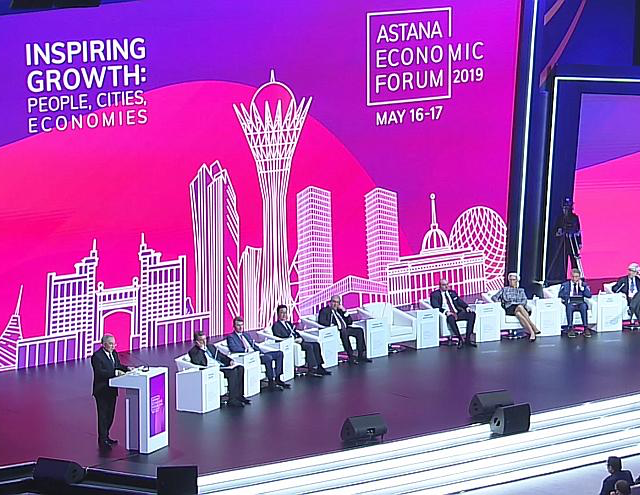The hospitality-tourism sector is one of the major players in the EU economy. Due to the COVID-19 pandemic, the sector is facing an unprecedented crisis which is putting the viability of companies and employment at risk. Thousands of companies are struggling to survive or face insolvency. Many workers are on temporary unemployment and have lost or risk to lose their jobs soon.
Usually, EU consumers spend approximately one third of their food and drink budget in restaurants, bars and cafés. The closure of the out-of-home market throughout Europe has had a huge knock-on effect on the entire supply chain, from farmers and food and drink processors to distributors and warehouses.
The tourism sector is vital for the economies of EU regions and entire countries. Before the crisis, the sector employed 12 million workers and represented 10% of the EU GDP. Now, an estimated 6.4 million jobs are under threat.
The European social partners representing the hospitality sector and the food and beverages manufacturing industry – EFFAT, FoodDrinkEurope, FoodServiceEurope and HOTREC – call on the EU for an exit strategy from the COVID-19 crisis and a recovery plan that allows hotels, restaurants, bars, cafés and canteens to survive and to continue employing millions of people across Europe.
Major demands to the EU institutions are:
· The hospitality-tourism sector should be strongly supported by the EU Recovery Plan as it is a major source of employment and a strategic sector that generates growth for other industries as well.
· Rebuilding consumers’ trust should be at the heart of recovery plans, based on strengthened measures to guarantee hygiene and safety of customers and workers, as well as restoring demand through fiscal stimuli and safeguarding purchasing power.
· Initiatives taken in several Member States to protect employment through short-time work and income compensation schemes should be continued beyond the gradual and progressive deconfinement and reopening strategies. The planned Commission’s SURE mechanism (Support to Mitigate Unemployment Risks in an Emergency) must be implemented soon and should cover all workers, including those with non-standard forms of employment, such as seasonal workers, part-time workers, and workers employed in the subcontracting chain.
· Social partners should be fully involved and consulted in the development and implementation of measures to support the hospitality-tourism sector.
The social partners addressed the joint statement to the European Commission and the European Parliament.
Earlier this week, as we have already reported, the European Commission presented a huge package of guidelines and recommendations to help Member States gradually lift travel restrictions and allow tourism businesses to reopen, after months of lockdown, while respecting necessary health precautions.
The Commission’s guidance aims to offer people the chance to get some well-needed rest, relaxation and fresh air. As soon as the health situation allows, people should be able to catch up with friends and family, in their own EU country or across borders, with all the safety and precautionary measures needed in place.
The package also aims to help the EU tourism sector recover from the pandemic, by supporting businesses. Although Europe continues to be a top destination for visitors, the lack of co-ordination between Member States on their policies, and the conflicting information being circulated is a source of consumer-fusion for consumers.
The Commission’s Tourism and Transport package includes:
- An overall strategy towards recovery in 2020 and beyond;
- A common approach to restoring free movement and lifting restrictions at EU internal borders in a gradual and coordinated way;
- A framework to support the gradual re-establishment of transport whilst ensuring the safety of passengers and personnel;
- A recommendation which aims to make travel vouchers an attractive alternative to cash reimbursement for consumers;
- Criteria for restoring tourism activities safely and gradually and for developing health protocols for hospitality establishments such as hotels.
Free movement and cross-border travel are key to tourism. As Member States manage to reduce the circulation of the virus, blanket restrictions to free movement should be replaced by more targeted measures. If a generalised lifting of restrictions is not justified by the health situation, the Commission proposes a phased and coordinated approach that starts by lifting restrictions between areas or Member States with sufficiently similar epidemiological situations. The approach must also be flexible, including the possibility to reintroduce certain measures if the epidemiological situation requires.
The principle of non-discrimination is of particular importance: when a Member State decides to allow travel into its territory or to specific regions and areas within its territory, it should do so in a non-discriminatory manner – allowing travel from all areas, regions or countries in the EU with similar epidemiological conditions. In the same vein, any restrictions must be lifted without discrimination, to all EU citizens and to all residents of that Member State regardless of their nationality, and should be applied to all parts of the Union in a similar epidemiological situation.
The guidelines present general principles for the safe and gradual restoration of passenger transport by air, rail, road and waterways. The guidelines put forth a series of recommendations, such as the need to limit contact between passengers and transport workers, and passengers themselves, reducing, where feasible, the density of passengers.
The guidelines also include indications on the use of personal protective equipment such as face masks and on adequate protocols in case passengers present coronavirus symptoms. The guidelines also make recommendations for each mode of transport and call for coordination among Member States in light of re-establishment of gradual connections between them.
Under EU rules, travellers have the right to choose between vouchers or cash reimbursement for cancelled transport tickets (plane, train, bus/coach, and ferries) or package travel. While reaffirming this right, the Commission’s recommendation aims to ensure that vouchers become a viable and more attractive alternative to reimbursement for cancelled trips in the context of the current pandemic, which has also put heavy financial strains on travel operators. The voluntary vouchers should be protected against insolvency of the issuer, with a minimum validity period of 12 months, and be refundable after at most one year, if not redeemed. They should also provide passengers sufficient flexibility, should allow the passengers to travel on the same route under the same service conditions or the travellers to book a package travel contract with the same type of services or of equivalent quality. They should also be transferable to another traveller.
Commissioner for the Internal Market, Thierry Breton, said: “Millions of SMEs and family -run businesses working in accommodation, restaurants, passenger transport and travel agencies risk bankruptcies and job losses – they urgently need to go back to work. We are helping European tourism get back on track while staying healthy and safe. Today we propose a common European approach to managing what will remain a difficult 2020 summer season, while preparing for a more sustainable and digital tourism ecosystem in the future.”
Commissioner for Justice and Consumers, Didier Reynders, said: “European consumers can be reassured: The Commission will not downgrade their EU rights for reimbursement for cancelled travel. We recommend, however, making vouchers more attractive for those who chose this option. In the meantime, freedom of movement is the right European citizens cherish most. It is important to restore this right as soon as the circumstances allow it.”
Commissioner for Transport, Adina Vălean, said: “We aim to create safe conditions in every mode of transport, to the extent possible, both for people traveling and transport workers. As we re-establish connectivity, these guidelines will provide authorities and stakeholders a standard framework. Our priority is to restore mobility as soon as possible, but only with clear provisions for safety and health.”




